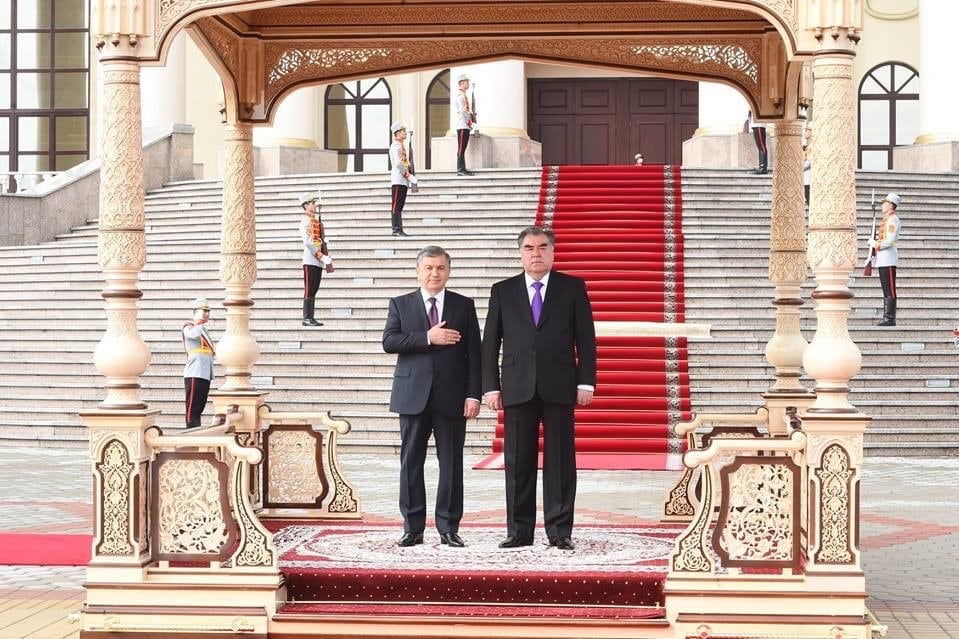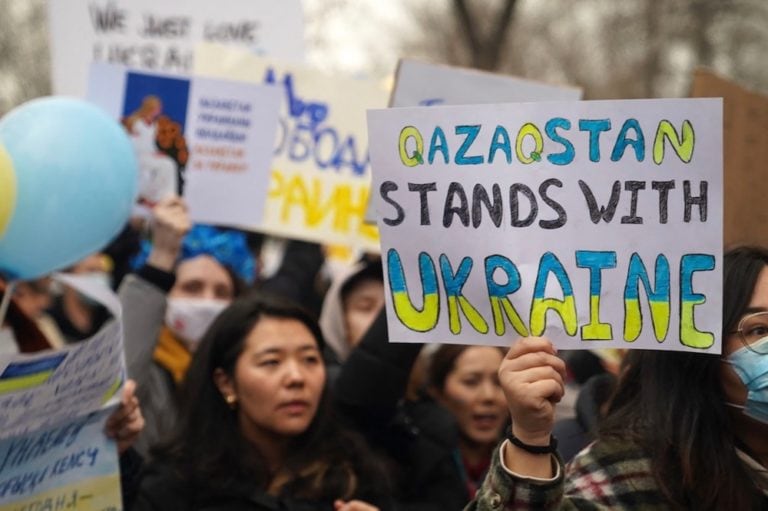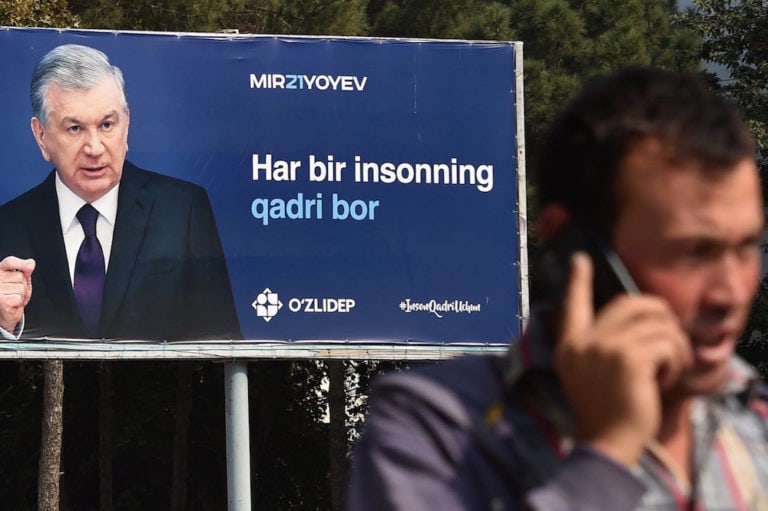Despite some encouraging signs that the president might be in favour of some press freedom, journalists continue to be targeted.
This statement was originally published on hrw.org on 27 March 2018.
Politically motivated prosecutions and censorship keep Uzbekistan’s media outlets, journalists, and other government critics self-censoring and under pressure, despite an improved landscape for open debate and critical reporting, Human Rights Watch said in a report and video released today. These actions undermine President Shavkat Mirziyoyev’s stated reform goals.
The 37-page report, You Can’t See Them, But They’re Always There: Censorship and Freedom of the Media in Uzbekistan, examines the situation for journalists, media outlets, and the exercise of free speech since Mirziyoyev assumed the presidency in September 2016. Human Rights Watch found that despite positive moves such as easing certain restrictions on free expression, censorship remains a potent force and the authorities selectively prosecute journalists, writers, and ordinary citizens expressing critical views.
“Meaningful and lasting reforms in Uzbekistan are only truly possible if the government fully embraces free speech for all citizens and shows that criticism has a protected place in society,” said Steve Swerdlow, Central Asia researcher at Human Rights Watch. “The way to put this into practice is to end censorship and the draconian prosecutions of journalists and support the growth of genuinely independent media.”
To decisively break with the abusive legacy of Uzbekistan’s late authoritarian President Islam Karimov, Uzbekistan should immediately end media censorship, drop ongoing prosecutions of reporters, and allow effective access to information, including online.
In November 2017, Human Rights Watch interviewed 22 journalists, editors, and media owners from 17 media outlets, including government-registered media, independent, and international outlets or publications. Many reported that media freedom had increased slightly and described a dynamic and competitive environment in which new Uzbek-language and Russian-language publications have appeared. Some journalists from both government-registered and independent outlets said they are freer to cover politically sensitive stories such as on corruption and forced labor in the cotton industry that they believe would have led to immediate arrest under Karimov. But all still pointed to fear of repression by security services as a major factor in the way they work.
Mirziyoyev has ordered the release of at least 27 political prisoners, including nine journalists, and relaxed certain restrictions on free expression. On February 22, authorities released the world’s longest imprisoned journalist, Yusuf Ruzimuradov, after 19 years in prison. Mirziyoyev has spoken out about the need to rein in the country’s feared security services agency, dismissing its much-feared head, Rustam Inoyatov, after almost 23 years in power, and supported the detention pending investigation of several high-level officials associated with abuses. Such moves have offered hope that the Uzbek government intends to break decisively with the abusive legacy of Karimov and meaningfully improve the country’s human rights situation.
But the continuing widespread intimidation of journalists by security services and the police leads to self-censorship in the media. With few exceptions, journalists said they still feared the professional repercussions if they exceeded the – as of now unclear – limits of the government’s tolerance. Several said that at least one security services officer is assigned to every media outlet to monitor its work and ensure its reporting keeps to certain parameters. “You may not see or hear from them, but you know they are always there,” one owner of a registered publication said.
The government has also continued to prosecute journalists and critics on overbroad and vague charges of “extremism.” At least two journalists, Bobomurod Abdullaev and Hayot Nasreddinov, are in detention on such politically motivated charges. Abdullaev, who has been held since September, told his relatives and lawyer that security services officials stripped him naked and put him in a freezing cell for three days, beat him, and forced him to remain standing, without sleep, for six days.
Authorities have also brought “insult” charges against a citizen who used Facebook to criticize the prime minister, and detained two activists who organized a peaceful demonstration in June to call for an investigation into the murder of a medical student. The government has unblocked some websites but other critical news sites, such as Radio Ozodlik and Fergana News, remain blocked.
The Uzbek government should remove all undue restrictions on freely expressing, receiving, and disseminating critical views, including online. It should stop overbroad blocking of websites; harassment, intimidation, and politically motivated prosecutions of journalists, including under trumped up charges of “extremism;” and immediately enforce the absolute ban on torture and ill treatment of detainees. The government should allow domestic and international media outlets, including those that had previously been forced to stop operating in Uzbekistan, to register, and grant accreditation to foreign journalists.
Uzbekistan’s international partners, including the United States and European Union, should explicitly tie their engagement to concrete human rights improvements, starting with releasing detained journalists and other perceived critics, removing undue restrictions on the media, and ending censorship.
“The heavy hand of the security services on media outlets and arrests of journalists for extremism create a chilling effect on free expression in Uzbekistan,” Swerdlow said. “Mirziyoyev should demonstrate that central to his reform is not just toleration of peaceful criticism of government policies – whether by journalists, rights activists, or religious believers – but genuinely valuing it.”



